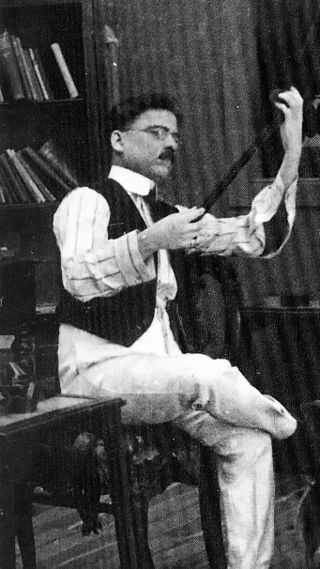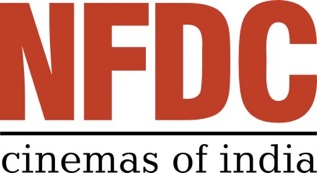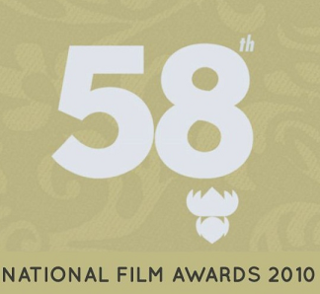Related Research Articles

The Dadasaheb Phalke Award is India's highest award in the field of cinema. It is presented annually at the National Film Awards ceremony by the Directorate of Film Festivals, an organisation set up by the Ministry of Information and Broadcasting. The recipient is honoured for their "outstanding contribution to the growth and development of Indian cinema" and is selected by a committee consisting of eminent personalities from the Indian film industry. The award comprises a Swarna Kamal medallion, a shawl, and a cash prize of ₹1,000,000 (US$13,000).

The National Film Development Corporation of India (NFDC) based in Mumbai is the central agency established in 1975, to encourage high quality Indian cinema. It functions in areas of film financing, production and distribution and under the Ministry of Information and Broadcasting, Government of India. The primary goal of the NFDC is to plan, promote and organise an integrated and efficient development of the Indian film industry and foster excellence in cinema.

The Directorate of Film Festivals in India was an organisation that initiated and presented the International Film Festival of India, the National Film Awards and the Indian Panorama. Although the Directorate helped appoint members of the jury panels each year, it had no input on which films are selected for consideration and which films ultimately win awards at the various functions it initiates.

The International Film Festival of India (IFFI), founded in 1952, is one of the film festivals in Asia. Held annually, currently in the state of Goa, on the western coast of the country, the festival aims at providing a common platform for the cinemas of the world to project the excellence of the film art; contributing to the understanding and appreciation of film cultures of different nations in the context of their social and cultural ethos, and promoting friendship and cooperation among people of the world. The festival is conducted jointly by the National Film Development Corporation of India and the state Government of Goa.

The 58th National Film Awards, presented by Directorate of Film Festivals, the organisation set up by Ministry of Information and Broadcasting, India to felicitate the best of Indian Cinema for the year 2010.
The 5th National Film Awards, formerly the State Awards for Films, were a set of awards presented by the Indian Ministry of Information and Broadcasting to recognize the best Indian films of 1957. The ceremony took place at Vigyan Bhavan, New Delhi, on 16 April 1958. The awards were given by the then-Indian President, Dr. Rajendra Prasad.
The 27th National Film Awards, presented by Directorate of Film Festivals, the organisation set up by Ministry of Information and Broadcasting, India to felicitate the best of Indian Cinema released in the year 1979. Ceremony took place in April 1980.

The 59th National Film Awards, presented by the Directorate of Film Festivals, honoured the best of Indian cinema for 2011 and took place on 3 May 2012 at Vigyan Bhavan, New Delhi. Awards were presented in 38 categories in the Feature Films section, 20 categories in the Non-Feature Films section and two categories for the Best Writing on Cinema section; 41 jury members chose the winners from 392 entries. The ceremony was hosted by actors Vinay Pathak and Saumya Tandon. Awards were presented by the Vice-President of India, Mohammad Hamid Ansari. The ceremony was broadcast live on three television channels, eleven All India Radio stations, and webcast live.
The National Film Awards are presented every year by Directorate of Film Festivals, the organization set up by Ministry of Information and Broadcasting, India, to felicitate the best of Indian Cinema for the year. Throughout the year various awards have been discontinued and given intermittently. Following is the list of discontinued and intermittent National Film Awards. The awards, instituted 1953, on the 40th anniversary of Indian Cinema, are given for feature films, non-feature films and best writing on cinema, and were once officially known as the State Awards for Films. In addition to the regular National Film Awards, several discontinued and Intermittent National Film Awards have been presented throughout the years.

Apurba Kishore Bir, also known as A. K. Bir, is an Indian film cinematographer, screenwriter and director. An alumnus of the Film and Television Institute of India, Pune, he worked in various Ad-films and documentaries before making his feature-film debut. He won the National Film Award for Best Cinematography for 27 Down, his debut film. His directional debut Aadi Mimansa won the Nargis Dutt Award for Best Feature Film on National Integration. Bir's other directional ventures Lavanya Preeti and Baaja were bestowed with the National Film Award for Best Children's Film. As of 2014, he has won nine National Film Awards—including three for Best Cinematography—and is one of the directors of National Film Development Corporation of India.
The 61st National Film Awards ceremony was an event during which the Directorate of Film Festivals of India presented its annual National Film Awards to honour the best films of 2013 in the Indian cinema. The ceremony was held on 3 May 2014.

Amshan Kumar is an Indian filmmaker and writer. He has won a National Film Award for his documentary film Yazhpanan Thedchanamoorthy - Music beyond boundaries in the year 2015. This is a lone Tamil non-fiction film to win a National Award in the past 17 years prior to this award He is also a writer on films, his book Cinema Rasanai on film appreciation is being used as a textbook in many universities. His debut feature film Oruththi was selected for the 2003 International Film Festival of India and was screened in the Indian Panorama section. His second feature film Manusangada was screened in the 39th Cairo International Film Festival and also in the 48th International Film Festival of India (2017) in the Indian Panorama section. He lives in Chennai.
The 7th International Film Festival of India was held from 3–17 January 1979 in New Delhi. The festival opened with "Junoon" by Shyam Benegal in the out of Competition world premiere. The festival was the only competitive and exclusive international film festival organised in the entire Third World during 1978–79. For the first time in the history of the Indian Competitive film festivals, the Jury was headed by a foreigner, Qusmane Sembene of Senegal. There were two women on the jury for the first time.
The 12th International Film Festival of India was held from 10-24 January 1989 in New Delhi. The festival was made non-competitive following a decision taken in August 1988 by the Ministry of Information and Broadcasting that festivals in future will be non-competitive and all festivals would be called International Film Festival of India (IFFI). The "Filmotsavs" and IFFI 90-91-92 together constituted 23 editions of the festival. From the 1990 edition, the IFFI was decided to be held for 10 days.
The 25th International Film Festival of India was held during 10-20 January 1994 at Kolkata.
The 26th International Film Festival of India was held during 10-20 January 1995 at Mumbai.

Pride of Tamil Cinema: 1931–2013 is a book by the Indian film historian and producer G. Dhananjayan, detailing information about the production and release of 163 Tamil-language films that were released between 1931 and 2013. It was released on 21 November 2014 by Blue Ocean Publishers during the 45th International Film Festival of India and received widespread critical acclaim. The book won the National Film Award – Special Jury Award / Special Mention.
The 13th International Film Festival of India was held as IFFI' 90 during 10–20 January 1990 at the Empire Theatre in Kolkata. The festival was made interim non-competitive following a decision taken in August 1988 by the Ministry of Information and Broadcasting. The "Filmotsavs" and IFFI 90-91-92 together constituted 23 editions of the festival
The 14th International Film Festival of India was held as IFFI' 91 during 10–20 January 1991 at Chennai. The festival was made interim non-competitive following a decision taken in August 1988 by the Ministry of Information and Broadcasting. The "Filmotsavs" and IFFI 90-91-92 together constituted 23 editions of the festival
The 15th International Film Festival of India was held as IFFI' 92 during 10–20 January 1992 at Bengaluru.
References
- ↑ "Directorate of Film Festival" (PDF). April 3, 2014. Archived from the original (PDF) on April 3, 2014. Retrieved November 26, 2022.
- ↑ Chinnarayana, Pulagam (August 2007). A natural frustration in the history of celluloid. p. 54. ISSN 1559-7008. Archived from the original on 31 May 2016. Retrieved 9 April 2016.
{{cite book}}:|work=ignored (help)CS1 maint: location missing publisher (link) - ↑ "24th International Film Festival: Grim celluloid images mirror turmoil of recent events". India Today.
- ↑ "NM0235 : INTERNATIONAL FILM FESTIVAL OF INDIA'93 | Films Division". filmsdivision.org.
- ↑ "International Film Festival of India, 1993, New Delhi, 10-20 January 1993 =: Bharata ka Antarrashtriya Filma Samaroha". Directorate of Film Festivals, Ministry of Information and Broadcasting. November 27, 1993 – via National Library of Australia (new catalog).
- ↑ "24th International film festival of India, 1993" – via pib.
- ↑ "Directorate of Film Festival" (PDF). Archived from the original (PDF) on 2017-12-31. Retrieved 2018-01-11.
- ↑ "International Film Festival in India". rrtd.nic.in. Archived from the original on 21 November 2004. Retrieved 31 March 2020.